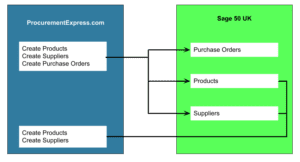 Trying to maintain motivation, focus and discipline is not always an easy task, especially in industries like construction where the goals are set over a longer term than most other industries, below are a few ideas on ways to help you not only maintain but also improve on all of these aspects.
Trying to maintain motivation, focus and discipline is not always an easy task, especially in industries like construction where the goals are set over a longer term than most other industries, below are a few ideas on ways to help you not only maintain but also improve on all of these aspects.
1. Stay connected to your Vision and Mission Statements
Enable your team to stay connected to the bigger picture and overall purpose by frequenting your company’s Vision and Mission Statement on a more regular basis. These provide the coordinates to the ultimate goal and supply context for all team activity as well as the motivational source to drive performance. Don’t get bogged down by the details though, given that visions often have the appearance of being never-ending, they can appear unattainable so ensure you translate yours into something meaningful and achievable over the course of 3 years.
2. Ensure the provision of direction, structure and clarity at all times
Make sure enough time is allocated to everyone on your team. You need to ensure that they understand the business plan and priorities for any new projects, milestones or even just the new financial year. Plans enable people to understand what needs to be done and how to do in order to fulfill the company’s Mission. Plans also identify what needs to happen within a certain time frame, helping everyone know if they are keeping on track or if certain areas have been overlooked and as such require more attention. This provides your team with direction, structure and clarity which are simply put – the critical requirements for high performance in any field.
3. Segment the overwhelming and provide some accountability
Break your overall plan into significantly smaller plans. This ensures much better prioritization and targeting of time and resources, on top of that it organically increasing action and accountability. For example if you have a 12 month plan you need to break it down into a set of 90 day plans. 90 day deadlines are more immediate so they hone team efforts and attentions, this method really helps to prevent the delays and procrastinations that directly related to using the longer more drawn out 12 month deadlines.
4. Conduct a quarterly review
Each and every quarter should have a review, with the whole team. It needs to cover your vision, the 90 day goals and include the progress towards your overall 12 month business plan objectives. As you well know, things can change and goal posts are forever on the move so be vigilant in determining whether the objectives and strategies are even still relevant any more. Some changes may need to be made to the priorities and resources may need to be reallocated if needs be.
5. Conduct regular team meetings
Never underestimate your team or the need for high quality communication. This a key factor in high performance teams so ensure team meetings become a habit. A regular day and time need to be established and they should only ever be rescheduled in an emergency. Regular team meetings are vital to help keep the team on track, motivated and focussed. The meetings enable you to communicate priorities and progress as well as assisting with the early identification of problems, concerns, ideas and opportunities.
When you have a team that is composed of many or a few smaller teams, then the sub teams should use a daily quick meeting, around 10 to 15 minutes if doable and preferably before the start of work. A quick check in on attendance, shift changes, reallocation of work, problems from the previous day etc helps to keep everyone informed and up to date. It also provides team leaders with an opportunity to check for issues before they become major problems.
6. Schedule regular performance reviews
Ideally this type of meeting should be part of your Performance Appraisal process and carried out on a one to one basis. If you don’t have an official Performance Appraisal process then you have to schedule times to meet with every team member at least once every six months or so. In the meeting you need to review progress, discuss performance and raise any other areas with issues or concerns. You should also discuss personal and career goals to help identify and establish any appropriate developmental opportunities, such opportunities are a key factor in staff satisfaction and retention.
7. Take the time to build better relationships
Making the time for regular informal one to one meetings with all your employees allows you a quick check in on workloads, whether or not there are any issues or concerns as well as any notable achievements. Building better relationships leads to long-term loyalty. People feel valued and problems don’t escalate. Prevention is better than cure and in almost all cases it is far less costly, time-consuming and painful.
8. Drive results up by building on existing skills and knowledge
High performance teams tend to be the highly skilled teams. Unfortunately training is, more often than not, one of the first casualties when people get busy. Unskilled and poorly trained staff cause more problems and costs in the long-term so plan ahead, designate time and allocate additional resources to ensure staff keep up to date with their professional development and technical skills.
9. Develop a rewards and recognition plan and involve the team
Involve your team in developing a team rewards and recognition plan. This can include rituals such as individual awards and commendations and team events to celebrate milestones and achievements. Social events are important for morale and relationships, but be sure to delegate their organization to team members – it’s a great way to promote team building and allows you to focus your expertise where it is more valued.
10. Remember the personal touch
Build morale with your own recognition system. This should include personal verbal acknowledgements, informal written forms of praise and where appropriate more formal letters for exceptional achievement or contribution. Check in with yourself once a week or month and ask yourself who has shined the brightest and to whom do I owe thanks for it. If you are ever in a position where you have to reprimand or say something generally not so positive, do so carefully and try to use two positives for every negative you are delivering.
Bonus tip: Automate what you can. There will always be a need for the human element, but the more you can reduce the efforts made by individuals the better their own time is freed up to do the things they are really good at. This is win-win. People are always happier doing what they know best. Even those that like to dabble in things they don’t know about, they are trying to get to know those things at the end of the day so that they can do another thing they excel at. Freeing up time from mundane and tedious lengthy tasks is a no brainer, happier workers and more targeted use of expertise. Procurementexpress.com can help by literally slashing the time it takes to raise and approve purchases, not to mention the other massive saving on time consumed by tracking and reporting on them.



